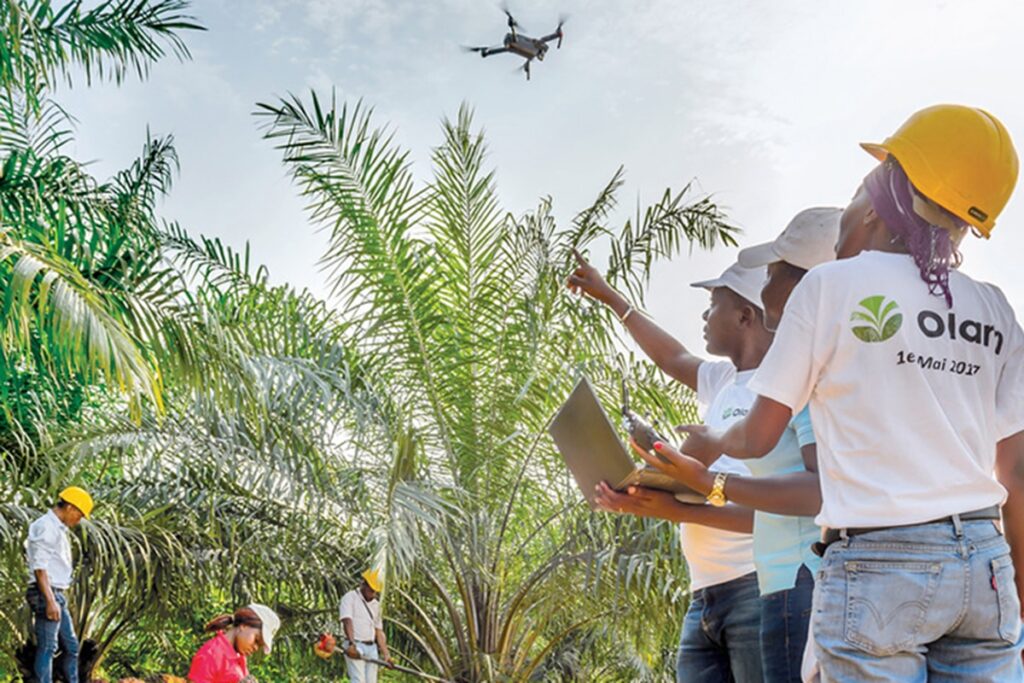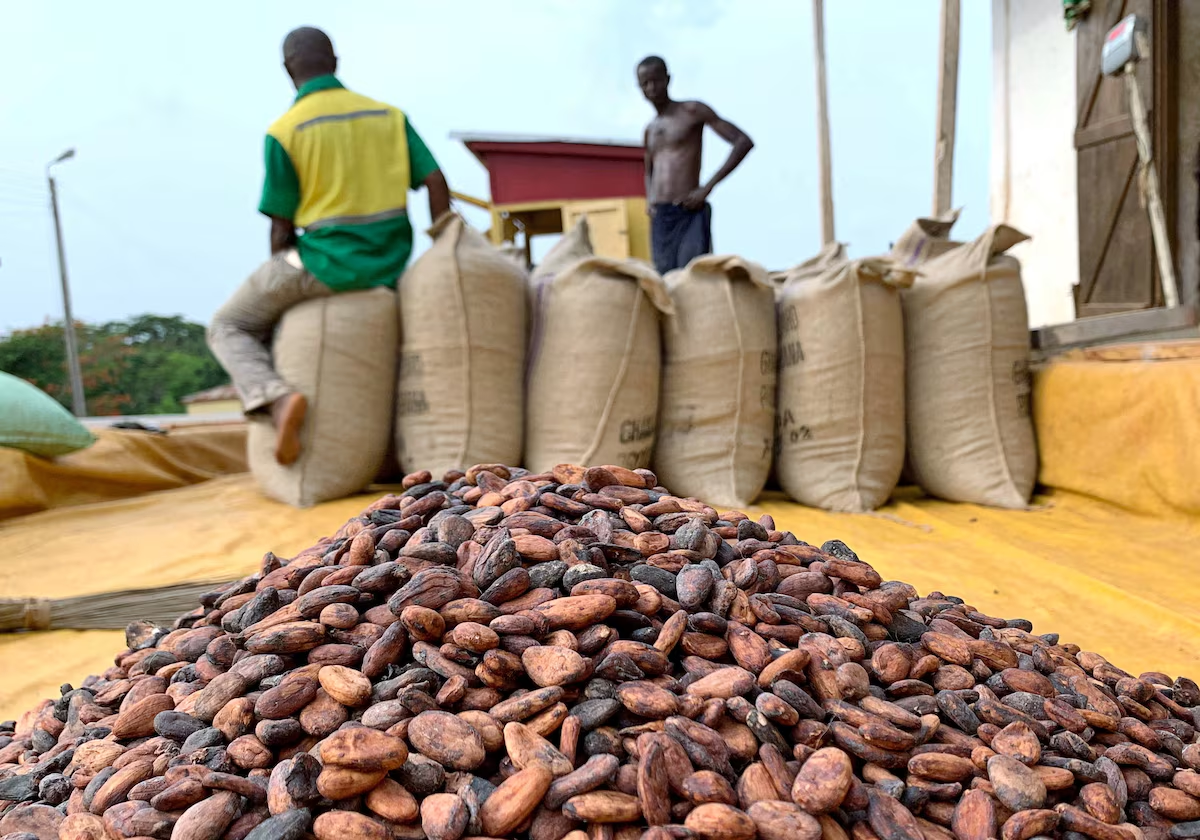Singapore-based Olam Group to Sell Nearly Half of Olam Agri to Saudi’s SALIC
Olam Group, the Singapore-based global food and agribusiness company, has announced that it will sell a 44.6% stake in its agribusiness unit, Olam Agri, to Saudi Arabia’s state-owned agricultural investment firm, the Saudi Agricultural and Livestock Investment Company (SALIC), for approximately $1.8 billion. This transaction, which values Olam Agri at $4 billion, will see SALIC increase its ownership in the company to 80.01%, effectively gaining majority control.

The deal marks a significant milestone in Olam Group’s ongoing restructuring strategy and is expected to unlock value for the company, which has been undergoing major transformations since its reorganization plans were first unveiled in 2020. The move is also aligned with Saudi Arabia’s long-term vision of securing global food supplies and enhancing its influence in the international agribusiness sector.
Strategic Rationale Behind the Sale
Olam Group’s decision to divest a significant portion of its agribusiness operations is part of its broader strategy to streamline its portfolio and focus on key growth areas. Olam has been restructuring its business into distinct operating units, namely Olam Agri and ofi (Olam Food Ingredients). The transaction provides Olam with substantial capital, which will help it further its strategic objectives, including pursuing an initial public offering (IPO) for ofi on the London Stock Exchange, with a secondary listing in Singapore.
For Saudi Arabia, this deal is part of its efforts to strengthen food security and enhance its footprint in the global agriculture sector. SALIC, a subsidiary of the Public Investment Fund (PIF) of Saudi Arabia, has been aggressively acquiring stakes in agricultural and food production companies worldwide. By increasing its stake in Olam Agri, SALIC is securing access to a diversified portfolio of agricultural commodities, including grains, oilseeds, rice, and animal feed, which are crucial for meeting the kingdom’s growing food demands.
Financial Implications and Market Reaction
Following the announcement, Olam Group’s shares saw a significant surge, jumping as much as 8.9% in early trading. The stock rose to its highest level since January, reflecting strong investor confidence in the deal. Analysts believe the sale will strengthen Olam’s balance sheet, providing additional financial flexibility for future investments and growth opportunities.
The sale is expected to generate a one-time gain of approximately $1.84 billion, which will be added to Olam Group’s equity reserves. Additionally, Olam has stated that it plans to sell its remaining 19.99% stake in Olam Agri to SALIC within three years of completing this transaction. The future sale is expected to be based on the same valuation, with an internal rate of return of 6%, potentially bringing Olam’s total proceeds from divesting Olam Agri to around $3.87 billion.
Impact on Olam Agri’s Future Operations
Olam Agri is one of the leading agribusinesses in the world, operating across multiple markets, supplying food, feed, and fiber to over 70 countries. The company plays a crucial role in global food supply chains, with extensive operations in trading, processing, and distribution.
With SALIC gaining majority control, industry experts speculate that Olam Agri could see strategic shifts in its operational focus. Saudi Arabia has been aiming to reduce its dependence on food imports by investing in overseas agricultural assets. This transaction is expected to enhance Olam Agri’s ability to expand its global sourcing capabilities, especially in key markets such as Asia, the Middle East, and Africa.
The increased investment from SALIC is also expected to provide Olam Agri with additional financial resources to scale its business, enhance efficiency, and further integrate its operations into the global food supply chain. However, the transition to majority Saudi ownership may bring changes to the company’s decision-making process, with a potential focus on markets and commodities that align with Saudi Arabia’s food security objectives.
Regulatory Approvals and Closing Conditions
The deal remains subject to customary regulatory approvals and closing conditions. Given the scale and nature of the transaction, both companies will need to secure necessary clearances from relevant authorities in multiple jurisdictions. While Olam Group and SALIC have expressed confidence in the successful completion of the transaction, such approvals typically take time, and any unforeseen regulatory hurdles could delay the process.
If all conditions are met, the deal is expected to be completed in the coming months, after which SALIC will officially take over the majority stake in Olam Agri.
Olam’s Future Focus and Growth Plans
With the sale of a significant stake in Olam Agri, Olam Group is expected to focus more on its food ingredients business under the brand ofi, which specializes in high-value products such as cocoa, coffee, dairy, nuts, and spices. The company has been planning an IPO for ofi, which was initially delayed due to volatile market conditions. The additional financial strength gained from the Olam Agri deal could accelerate Olam’s plans to move forward with the listing.
The separation of ofi and Olam Agri into distinct business units was designed to unlock value and enable each entity to operate with a clearer strategic focus. The latest transaction reinforces Olam’s commitment to this strategy, allowing it to optimize capital allocation and sharpen its competitive edge in its core business areas.
Olam’s Group CEO, Sunny Verghese, has emphasized that this deal marks a pivotal moment for the company, enabling it to reposition itself for long-term sustainable growth. He stated that the transaction not only strengthens Olam’s financial position but also allows it to explore new opportunities in the global food and agribusiness landscape.
Broader Implications for the Agribusiness Sector
The Olam-SALIC deal is a reflection of broader trends in the agribusiness sector, where strategic partnerships and consolidations are becoming increasingly common. With growing concerns over food security, climate change, and supply chain disruptions, companies and governments worldwide are seeking ways to secure stable food supplies and mitigate risks.
Saudi Arabia has been actively investing in agriculture and food supply chains to reduce its reliance on imports, a strategy that aligns with its Vision 2030 economic diversification plan. The kingdom has been acquiring stakes in major agribusiness firms and securing long-term supply contracts for key commodities. This latest deal with Olam Agri strengthens its position as a major player in global agricultural trade.
For Olam, the transaction provides a strong financial foundation to focus on growth and innovation in the food ingredients sector, while also enabling it to allocate capital efficiently across its business segments.
Conclusion
Olam Group’s decision to sell a 44.6% stake in Olam Agri to Saudi Arabia’s SALIC for $1.8 billion is a major development in the agribusiness industry. The deal aligns with both companies’ strategic goals—SALIC’s ambition to enhance global food security and Olam’s efforts to streamline operations and unlock value for its shareholders.
As the transaction moves forward, stakeholders will be closely watching how it impacts Olam Agri’s operations, Olam Group’s future direction, and Saudi Arabia’s growing influence in the global agribusiness sector. If successfully completed, this deal could serve as a model for future investments and partnerships in the food and agriculture industry, paving the way for greater collaboration between companies in different regions to address food security challenges and supply chain disruptions.
Olam Group’s $1.8 Billion Agri-Business Stake Sale to Saudi Arabia’s SALIC



